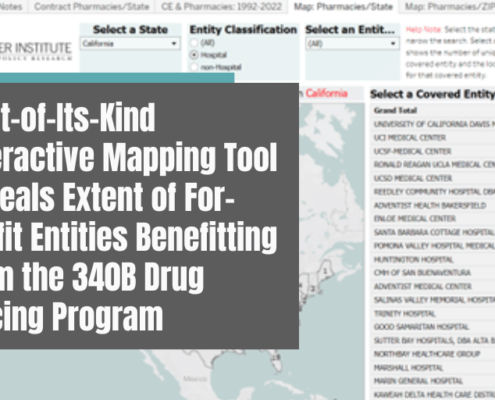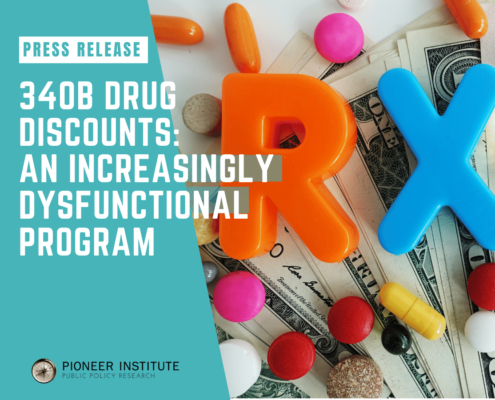The Promise and Challenges of Rare Cancer Treatments
/in Blog: Healthcare, Featured, Healthcare, Press Releases: Life Sciences /by Editorial Staff Share on Facebook
Share on Twitter
Share on
LinkedIn
+
Dr. William Smith, Pioneer Institute’s Visiting Fellow in Life Sciences, spoke about the challenges and opportunities for rare cancer treatments, and concerns about cost effectiveness tools such as the Quality Adjusted Life Year (QALY), in a video interview produced by Rare Cancers, a patient group based in Australia, for the November 26th Can Forum.
Watch the video below:
Get Updates On Our Life Sciences Work!
Related Content:

Pioneer Institute Study Calls for Reforms to Ensure that Pharmacy Benefit Manager Practices Benefit Patients, Healthcare Payers
Congress likely to take up PBM reform early this year; Pioneer Institute Calls for PBM’s to be more transparent

Opinion: Legislature should act on bill to limit out-of-pocket drug costs
S. 609, a bill that would limit out-of-pocket costs for patients paying for prescription drugs, is a clear step in the right direction. Massachusetts should join 16 other states that have passed similar bills to protect patients.

Opinion: Drug patents aren’t a ‘necessary evil.’ They save lives.
Drug patents are one of the most important public policy innovations in all of human history, and a boon to patients awaiting cures. Inventions only come when inventors are rewarded, not punished. Patents are not a “necessary evil.”

Study: High List Prices and Deep Discounts for Prescription Drugs Hurt Poor and Sick Patients
A new Pioneer Institute study illustrates how the current system of drug pricing and discounts leads to patients with challenging diseases being charged huge out-of-pocket sums to keep other premiums low, effectively imposing financial penalties on the sick to protect the healthy and wealthy.

A Federal Drug Discount Program for the Wealthy
The combination of legal disputes, a growing data repository and investigative reports have necessarily put the 340B Drug Pricing Program under the microscope. Combined with the fact that the policy lacks transparency, 340B has spiraled out of control to the point that no policymaker can ignore the need to look closer.

First-of-Its-Kind Interactive Mapping Tool Reveals Extent of For-Profit Entities Benefitting from the 340B Drug Pricing Program
Today, Pioneer Institute released a first-of-its-kind, 50-state mapping tool and database highlighting the troubling way in which hospitals and covered entities leverage unlimited pharmacy contracts under the 340B Drug Pricing Program.

Harvard research points to ending drug cost help
A common grievance about Harvard is that the university is out of touch with the concerns of everyday Americans. This perception is confirmed by recent research from Harvard Business School that contends patients should be denied assistance that helps them afford their prescription drugs. The Harvard study argues that in order to control drug prices, the government should deny patients’ access to copay assistance programs offered by drug manufacturers. It flies in the face of federal and state efforts to protect the value of such assistance programs for patients and ignores basic facts about how and when patients use copay assistance to access their medications.

Massachusetts Hospitals Pull Back on Charity Care as Revenue from Federal 340B Drug Discount Program Explodes
Over the past decade, the revenue for hospitals generated by the federal 340B drug discount program, initially intended to serve low-income, uninsured populations, has exploded even while a number of important Massachusetts hospitals have reduced the level of charity care they provide, according to a new study published by Pioneer Institute. The Pioneer Institute study, “340B Drug Discounts: An Increasingly Dysfunctional Program,” notes that nationwide, 340B drug sales rose from $9 billion in 2014 to $38 billion in 2020.



